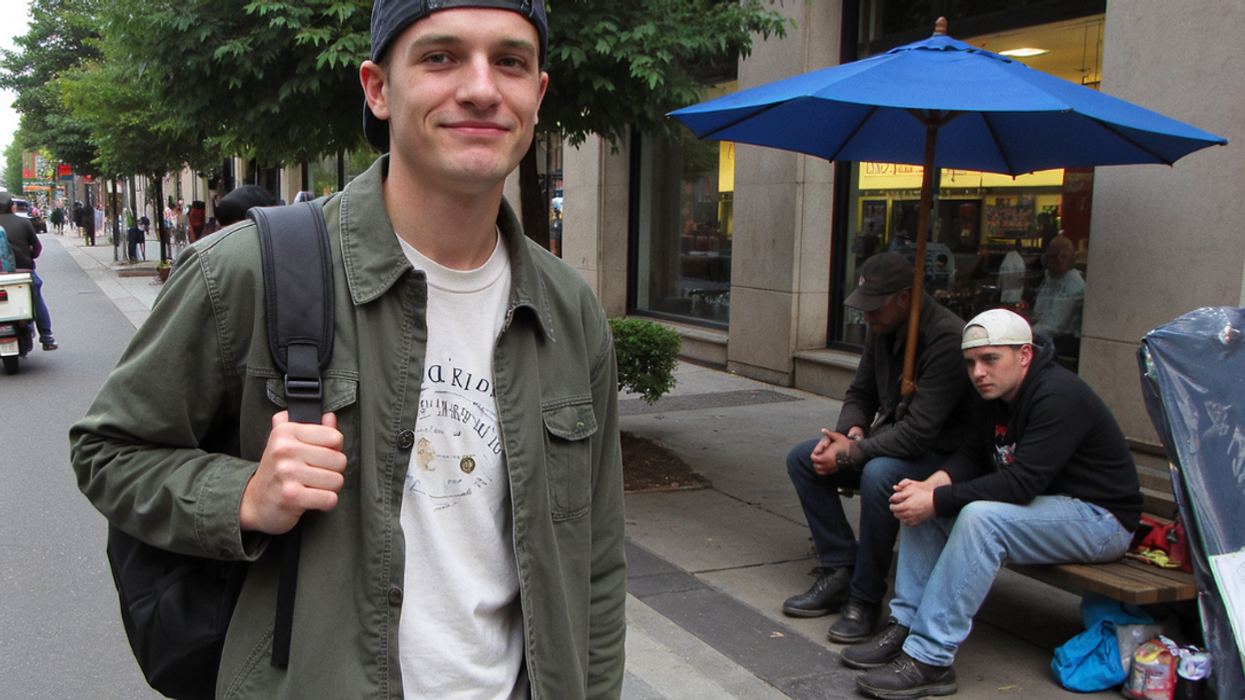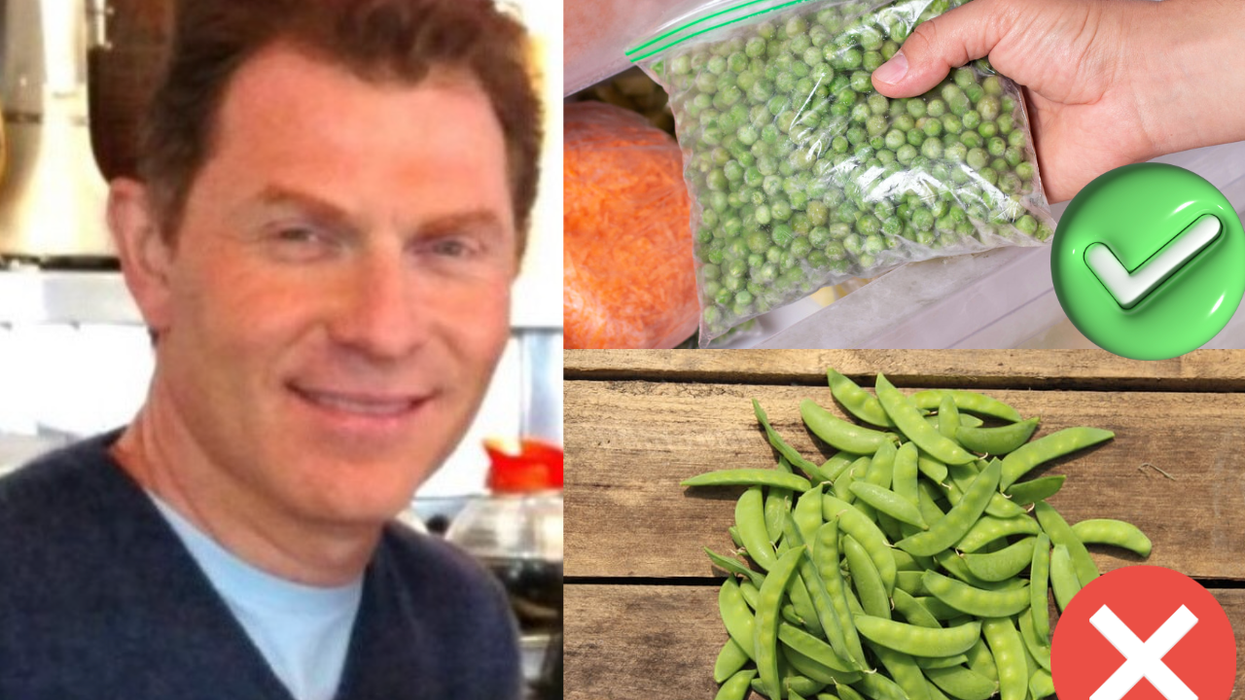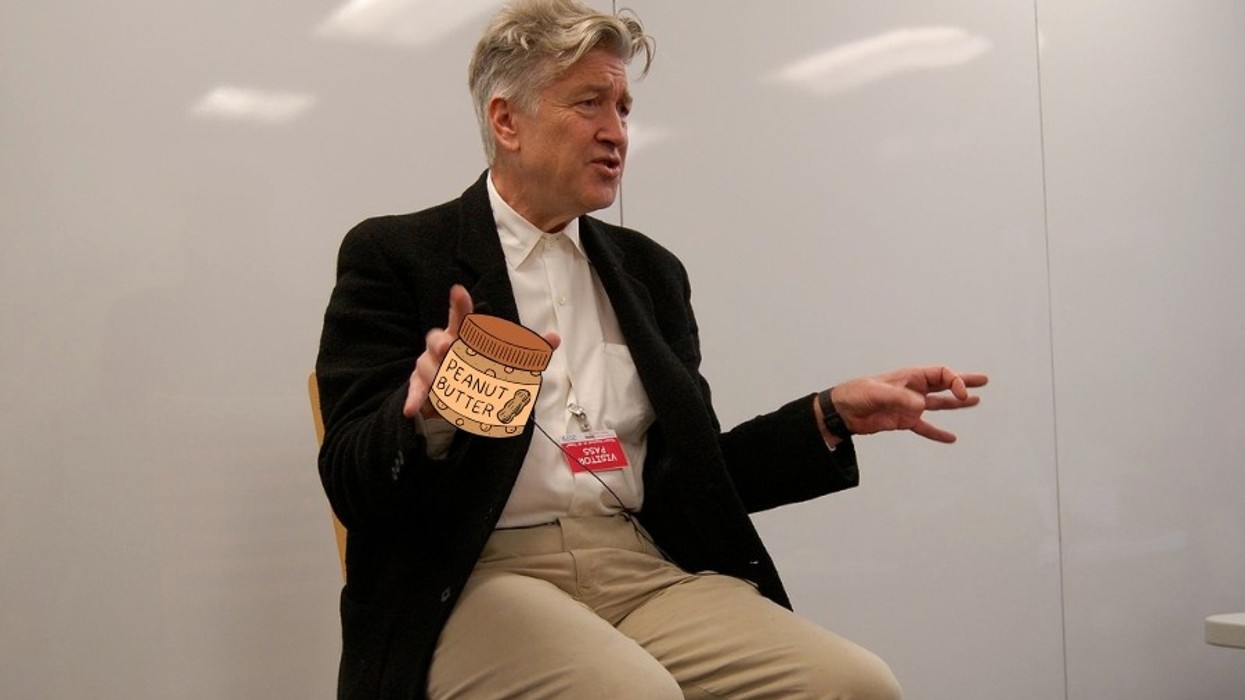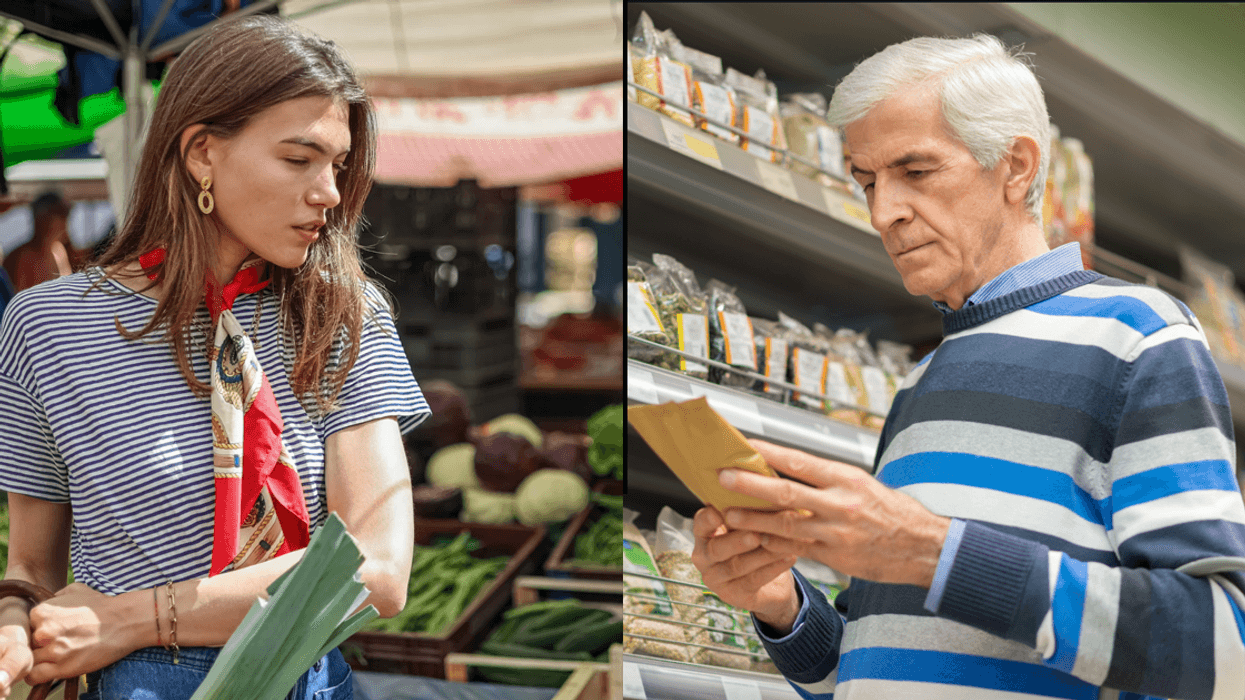This fall, the United Nations is preparing to launch its 17 Sustainable Development Goals—an extraordinary action plan to solve the world’s biggest problems by 2030. Over the coming months, we’ll be connecting withThe Local Globalists: 17 nonprofit founders, entrepreneurs, and social innovators who are working every day, wherever they are, to turn one of the U.N.’s #globalgoalsinto reality.
Goal 9: Build resilient infrastructure, promote inclusive and sustainable industrialization, and foster innovation.
Last month Mark Gunton, CEO of the Clinton Giustra Enterprise Partnership (CGEP), was touring Latin America with Bill Clinton, Frank Giustra, and Carlos Slim to showcase and oversee several of their poverty-alleviating enterprises. Since its inception in 2007, CGEP, which develops and manages “social enterprises that foster sustainable economic development,” has impacted 400,000 people worldwide, generated over $4 million in sales, increased the incomes of more than 23,000 farmers and entrepreneurs by training and connecting them with larger markets, provided job training to over 3,000 youth, and equipped upwards of 1,300 women with entrepreneurial training and opportunities.
“We plan social enterprises from scratch in a way that’s easily replicated,” Gunton explains. Three years into their social enterprise strategy, CGEP has started eight enterprises and has another 10 in the pipeline. “Our projection is that our enterprises will positively impact the lives of over 1 million people within three years,” he says. “We go beyond impact investment—we call ourselves impact entrepreneurs. There are massive opportunities for social impact in gaps in the local economy. We fill these gaps by launching our own enterprises that bring thousands of small farmers and entrepreneurs into high-value markets. We do this in a way that is sustainable and self-scaling. All profits are recycled to grow an enterprise or create new ones.”
Gunton credits the partnership’s incredible success to unwavering good values and business savvy. They don’t make their profits on sugar or drugs or tobacco or other things that would harm their customers or waste their money. Instead, they focus on equipping local farmers and women to sell things their communities need, like hygiene products and nutrient-enriched foods, and supporting small farmers to produce at their full potential.
CGEP works by three main enterprise models: training, supply chain, and distribution. Their vocational training center works with local disadvantaged communities by training and placing them in jobs with high-growth industries such as tourism, logistics, and textiles. Gunton offers an example from Colombia: “For example, a hotel in Cartagena came to us and said they needed good quality labor. They were importing labor while down the road were shantytowns with 70 percent unemployment.” In response, CGEP’s center in Colombia trains local youth in housekeeping, guest services, and food preparation and serving, and now the hotel employs local labor trained to the service and skill level they require, and has helped lift local underserved youth out of poverty.
In their supply chain enterprises, currently operating in Colombia, El Salvador, and Haiti, and brewing in Africa and Asia, CGEP works with farmers to increase agricultural production and reliability, boost capacity, and lower the country’s reliance on imports. “For example,” Gunton says, “in El Salvador, before we started working in the country, all first-quality produce was imported, as local production of fruits and vegetables was insufficient to cover the demands of the population.” But now, three years later, Super Selectos—the largest Salvadoran supermarket chain and the enterprise’s main buyer—has increased their local sourcing from less than 10 percent to 30 percent, which will further increase to 50 percent by 2018, and farmers have doubled and tripled their incomes. How did they accomplish this?
“There are 500 million small farmers living outside the formal world economy at subsistence or slightly beyond it, living on between $1 and $3 a day in poverty,” Gunton says. “They produce crops for their own consumption or they sell to intermediaries to the formal economy. Generation after generation exists in that state because they don’t have access to quality markets, or credit, or the knowledge to produce things at a certain yield or quality that would be interesting to high-value buyers.”
In Haiti, CGEP works with peanut farmers. They mapped out all the peanut farmers in the country, and where there were clusters of 200 or more in a radius of 3 kilometers (almost 2 miles), they set up depots at central points. They then provided farmers with seed, fertilizer, herbicide, and pesticide, enabling the farmers to produce a three-times-higher yield per square meter. Because all of the farmers worked within walking distance of the depot, they weren’t reliant on a local trader who had a truck who could buy the peanuts for whatever price he’d want to set. Instead, the farmers walk or bike their peanuts to the depot, and CGEP stores and sells them on purchase order to peanut manufacturers.
Farmers are growing more and selling at a higher price, and on average their income has tripled. Haiti’s food security, nutrition, and livelihood have also improved as a result. “We’re building real infrastructure,” Gunton says. CGEP now works with 3,000 farmers in six depots. Next year they hope to scale up to 12 depots, and ultimately they plan to have 40, which would support 12,000 farmers. They also have started expanding this agricultural system with limes, sorghum, sisal, cashews, and mangos, a strategy that’s expected to increase small farmers’ annual incomes from $500 to $3,500.
CGEP has had similar success with produce farmers in El Salvador, where previously all supermarket-grade fruits and vegetables were imported from Guatemala. CGEP mapped out and recruited farmers, set up collection points, and trained and launched an enterprise. In the past two years, they have brought more than 300 small farmers into their system and are working at a profit, and the enterprise can continue on its own without help from CGEP. “It’s sustainable philanthropy,” Gunton says.
The distribution enterprise was Gunton’s idea, sparked by his extensive background working in global logistics, mostly for Fortune 500 companies. “We noticed that in towns with populations of less than 15,000, there was no direct distribution of manufactured food and most consumer goods. People would need to come to the city, fill up their baskets and bring them out to the fields. This was incredibly inefficient and inexpensive.” CGEP partnered with Unilever and others to design and deliver products tailored to the communities they serve, and equip women with a basket of affordable goods to sell, like nutritionally supplemented food, water filters, stoves, and hygiene products.
Previously, Gunton saw very few commercially viable distribution models. Most programs he saw sold one product, like glasses, to low-income communities. “But if you sell reading glasses, you sell to one community and don’t need to come back for one year. You have a very limited share of village wallet,” Gunton says. With CGEP’s model, the basket of goods is sufficiently broad to foster economic viability.
In Peru, CGEP works with about a thousand women. Why women? “They have better and more extensive social networks to sell through,” Gunton explains. “They’re also more trustworthy and reliable, and are more likely to invest their earnings in their families. Women will spend $5 they make on food or school fees, but a man will often drink it.” Gunton also feels the developmental impact for woman is greater. “In many parts of the world, women are marginalized and disadvantaged. Teaching them to be entrepreneurs gives them an identity, builds community, and provides a great sense of purpose. Through this work they can double or triple household income, or become financially independent.” CGEP gives women the goods on credit to sell in their communities. What they don’t sell they bring back, for other people to take. If CGEP buys the products from Unilever for $60, the women sell it for $100, they keep $20, give CGEP $20, and $60 goes back to cover the cost of the products. Everyone makes a small margin, so the model becomes self-sustaining. “We’ve created a model which serves the last part of the market in an economically viable way,” Gunton says. All of CGEP’s enterprises are designed to be cash-flow-positive in four years, and many reach that point sooner.
Their easily measurable and consistently impressive successes make grant funding so much more effective for CGEP. “By building operational systems, the impact of the grant money is so much greater than just covering training costs,” Gunton says. “There are so many examples in Haiti of farmer training, but if you don’t connect them to quality markets and remove working capital barriers, you’re happy if you get a 20 percent increase in productivity.” That’s not enough difference to change lives, he says. With a tripled salary, families can grow from subsistence to sending their kids to school for the first time in generations, maybe ever.
Gunton traces the roots of his commitment to socially responsible entrepreneurship to his youth in the 1970s, when Oxfam footage of starving children aired between TV shows. “I saw my parents upset over this. We sang carols to raise for money for Oxfam.” After earning a bachelor’s degree in international development, he spent two years backpacking in developing countries, where he saw firsthand the challenges people faced and also their resourcefulness and potential to spur economic development given the opportunity.
He spent the next 28 years working with developing countries to improve their business, finances, and public health. His earlier achievements included founding the North Star Alliance, a tremendously successful roadside clinic network in Africa, and pioneering TNT’s partnership in the World Food Programme. He also introduced a new business that was the first to take freight on a scheduled basis between cities in Southeast Asia using regional road networks instead of planes. Gunton saw firsthand the far-reaching and dramatic positive impact business could have on local communities, and committed himself to creating sustainable local businesses that focus on releasing the massive latent potential of low-income populations. So he was a natural choice when the Clinton Foundation was looking for someone to lead CGEP in 2012.
Gunton says that working with President Clinton has been a fantastic perk of the job. “He’s a totally amazing guy,” Gunton says, “just uniquely special in terms of his intellect and the creativity of his brain.” He’s had the same experience with Hillary Clinton. “She’s the most impressive person I’ve ever worked with in terms of the speed of her thought and getting stuff done. I’ve been so impressed with her insight—with a relatively small amount of information, she can get right to the crux of things,” he says.
Ultimately, Gunton would like to see the spread of the socially responsible enterprises and sustainable infrastructures that CGEP has helped to set up. “To achieve our strategy, we have to get into mass replication. We have to bring on new strategic partners. We have strong financial backers, but not enough. We’re looking for grant funders for our projects in Africa and Asia,” he says. Gunton is also interested in creating enterprises in Indonesia, and is soon traveling to Australia to seek funding for them.
Gunton insists there doesn’t have to be a conflict between social goals and commercial goals. In fact, he considers them to be complementary. “A sustainable model is where all participants prosper—our enterprises simply remove the barriers that small farmers and female entrepreneurs face. We invest in them and they, in return, provide the products and services we sell. Everyone wins,” he says.
CGEP’s goal is poverty alleviation at scale. “I hope that in 20 years, we would have replicated our enterprise models over 200 times and transformed the lives of millions of people. I also hope that we would have introduced a new enterprise model that focuses on low-cost health delivery, in a way similar to our distribution model, that has a great need but also great potential in the developing world. I believe our work will pave the way for other NGOs, social enterprises, development finance institutions, and others to engage individually and collectively in market-driven, sustainable solutions to developmental challenges and shift away from traditional reliance on donor funds.”














